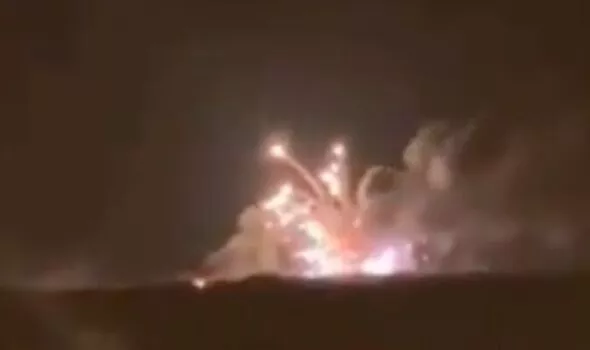On Tuesday, March 29, explosions were reported outside the Russian city of Belgorod. This is just around 50 kilometres north of Kharkiv, Ukraine, which has been bombed by Russian soldiers in recent weeks.
According to Russian media, four personnel were injured as a consequence of one explosion.
It then retracted its report.
Twitter user @JimmySecUK, who covers security, tweeted an article from Russia’s state-owned TASS news agency that described the explosion’s impact.
“Four personnel were wounded when a shell hit a military base in the Belgorod area,” he translated.
Around 10 minutes later, he posted: “TASS have deleted the tweet above, presumably because admitting to a successful strike on Russian territory is slightly embarrassing.”
The veracity of stories is yet uncertain — and may remain so in the future.
Belgorod Oblast Governor Vyacheslav Gladkov added to the confusion by stating there were no victims.
According to him, blasts happened near the town of Krasny Oktyabr.
This location is approximately 19 miles southwest of Belgorod.
He did not offer an explanation for the explosion, but did say he will share more details later.
Rob Lee, a PhD student in War Studies at King’s College London, speculated on Twitter that the explosion may have been a mistake on Russia’s part rather than a Ukrainian strike.
“This might be sabotage by Ukrainian SSO/SOF [Special Operations Forces] who have purportedly undertaken operations in Russia in recent years,” he added.
“However, we should keep in mind that multiple explosions at Russian ammunition stockpiles have occurred in recent years as a result of inadequate safety measures.”
Mr Lee later posted a post by Ukrainian journalist Yury Butusov, who claimed it was a Tochka-U tactical ballistic missile attack.
“If this is a Ukrainian Tochka-U strike, I believe this will be the third successful strike within Russia,” he continued. The other two incidents took place on Russian airfields.”
This comes after the Kremlin declared a reduction in the operation of its soldiers in the region of Kyiv in order to boost the chances of success in continuing peace negotiations.
According to the Financial Times’ Max Seddon, Russian Deputy Defence Minister Alexander Fomin, Moscow has decided to “fundamentally reduce military action in the direction of Kyiv and Chernigiv… to increase mutual confidence for future discussions to agree and sign.”





















